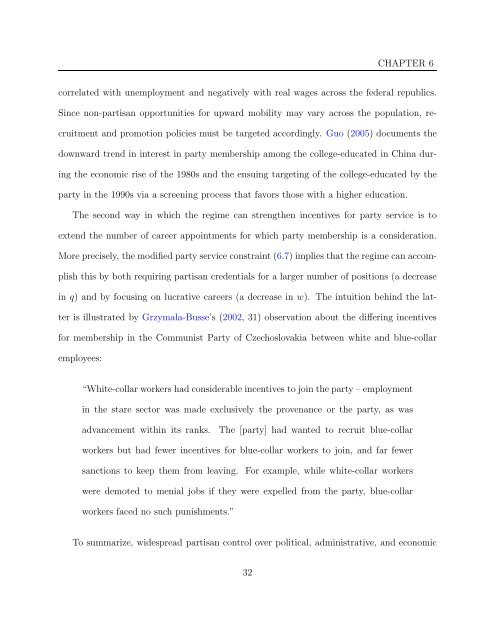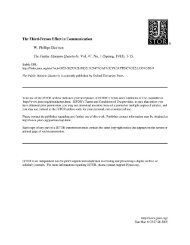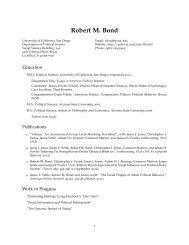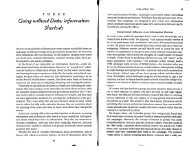Chapter 6 Why Authoritarian Parties? The Regime Party as an ...
Chapter 6 Why Authoritarian Parties? The Regime Party as an ...
Chapter 6 Why Authoritarian Parties? The Regime Party as an ...
Create successful ePaper yourself
Turn your PDF publications into a flip-book with our unique Google optimized e-Paper software.
CHAPTER 6<br />
correlated with unemployment <strong>an</strong>d negatively with real wages across the federal republics.<br />
Since non-partis<strong>an</strong> opportunities for upward mobility may vary across the population, re-<br />
cruitment <strong>an</strong>d promotion policies must be targeted accordingly. Guo (2005) documents the<br />
downward trend in interest in party membership among the college-educated in China dur-<br />
ing the economic rise of the 1980s <strong>an</strong>d the ensuing targeting of the college-educated by the<br />
party in the 1990s via a screening process that favors those with a higher education.<br />
<strong>The</strong> second way in which the regime c<strong>an</strong> strengthen incentives for party service is to<br />
extend the number of career appointments for which party membership is a consideration.<br />
Moreprecisely, themodifiedpartyservice constraint (6.7)implies thattheregimec<strong>an</strong>accom-<br />
plish this by both requiring partis<strong>an</strong> credentials for a larger number of positions (a decre<strong>as</strong>e<br />
in q) <strong>an</strong>d by focusing on lucrative careers (a decre<strong>as</strong>e in w). <strong>The</strong> intuition behind the lat-<br />
ter is illustrated by Grzyma̷la-Busse’s (2002, 31) observation about the differing incentives<br />
for membership in the Communist <strong>Party</strong> of Czechoslovakia between white <strong>an</strong>d blue-collar<br />
employees:<br />
“White-collarworkers hadconsiderable incentives tojointheparty–employment<br />
in the stare sector w<strong>as</strong> made exclusively the proven<strong>an</strong>ce or the party, <strong>as</strong> w<strong>as</strong><br />
adv<strong>an</strong>cement within its r<strong>an</strong>ks. <strong>The</strong> [party] had w<strong>an</strong>ted to recruit blue-collar<br />
workers but had fewer incentives for blue-collar workers to join, <strong>an</strong>d far fewer<br />
s<strong>an</strong>ctions to keep them from leaving. For example, while white-collar workers<br />
were demoted to menial jobs if they were expelled from the party, blue-collar<br />
workers faced no such punishments.”<br />
To summarize, widespread partis<strong>an</strong> control over political, administrative, <strong>an</strong>d economic<br />
32











